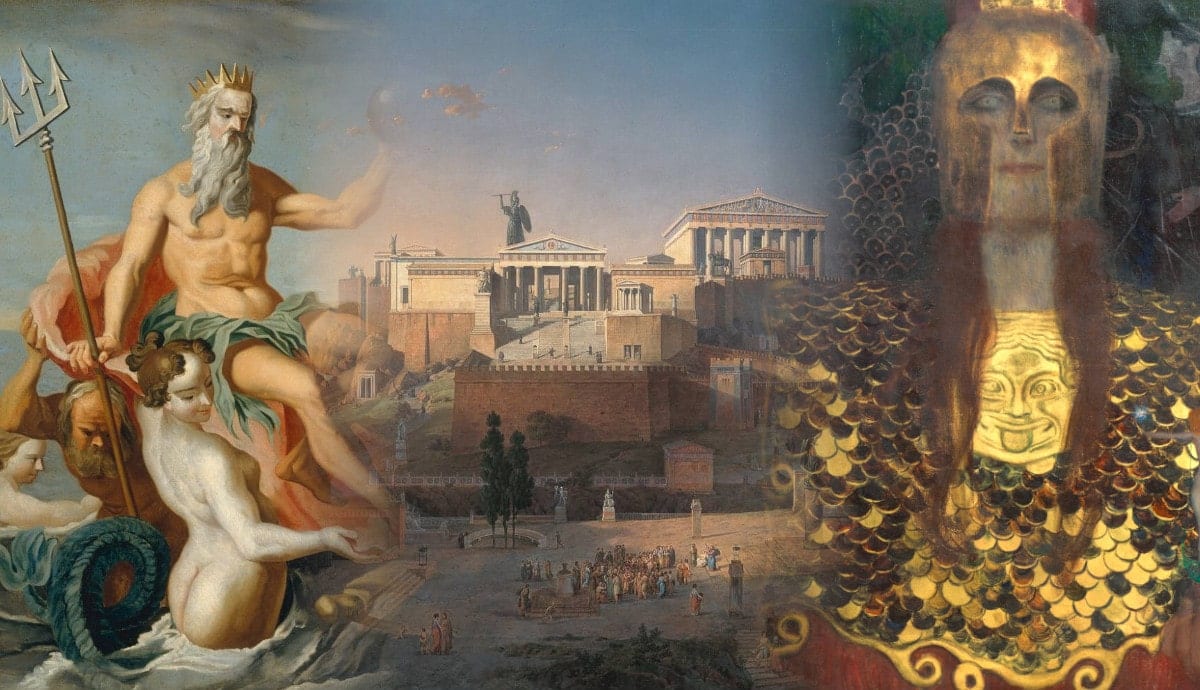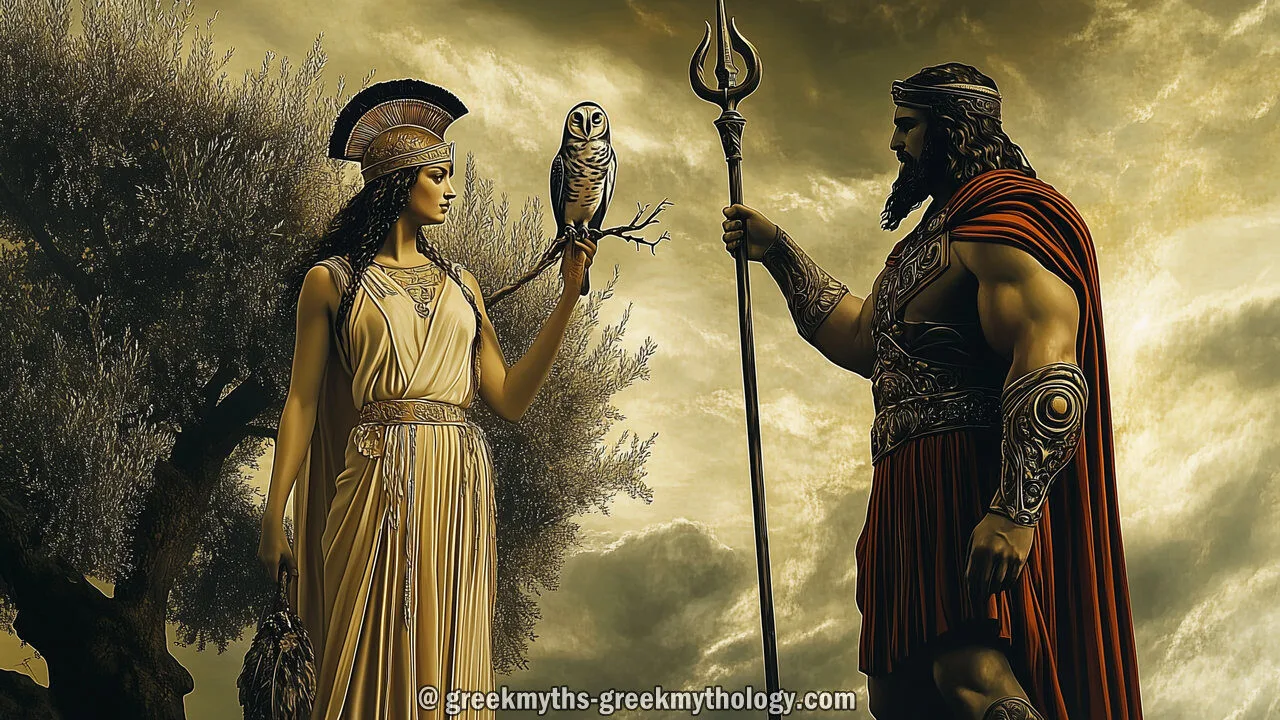Alright, so I was fiddling around the other day, you know, just trying to get my head around some of these old stories. And this one, the contest between Poseidon and Athena for Athens, it just kept popping into my mind. I thought, okay, let's really try to unpack this thing, go through the motions, see what it's all about from a practical angle.
Getting Started: Visualizing the Scene
First thing I did, I tried to picture the whole setup. So, you've got Poseidon, god of the sea, obviously a big deal. I imagined him stomping onto the Acropolis, probably all dramatic, trident in hand. The stories say he struck the rock, and out came a saltwater spring. Some versions even say he offered the first horse, which, fair enough, horses are useful.
Then, there's Athena. Goddess of wisdom, crafts, and all that. She steps up. I pictured her being a bit more composed, less showy than Poseidon. Her move was to plant an olive tree. Simple, right? But packed with meaning.

The "Gifts" - A Closer Look
I spent a good while just mulling over these two offerings. Poseidon's gift: a saltwater spring. Okay, symbolic of naval power, maybe? But saltwater… not exactly great for drinking or farming right there on the hill. If it was a horse, that’s a different story – speed, warfare, transport. Definitely has its pros.
Athena's gift: an olive tree. Now, this one, I had to think about the long game. An olive tree gives you olives, which means oil – for lamps, for cooking, for trade. The wood is useful too. It’s a symbol of peace and prosperity. It’s not an instant "wow" like a magic spring or a horse appearing out of nowhere, but it's got lasting value.
The Judging Process - Or Lack Thereof?
This is where my "practice" got a bit sticky. Who actually judged this thing? Some tales say it was Cecrops, the first king of Athens, who was supposedly half-man, half-serpent. Others say it was the Olympian gods themselves, or even the people of Athens. I tried to imagine how that would even work.
- If it's Cecrops, what are his criteria?
- If it's the gods, are they biased? (Probably!)
- If it's the people, how do they vote without offending a powerful god?
I actually sat down and tried to list the pros and cons for each gift, as if I were one of the judges. It’s harder than it sounds when you’re dealing with divine powers and potentially dire consequences for picking "wrong."
My Takeaway from "Walking Through It"
So, I started this whole thing just trying to understand the story better, to sort of re-enact it in my mind. What I ended up realizing, or at least what my gut tells me, is that the choice of Athena's gift made a lot of sense for what Athens would become. The olive tree represented stability, cultivation, and resources that could sustain a city in the long run.

Poseidon’s offering, whether the spring or the horse, felt more about immediate power, maybe a bit more chaotic or war-like. Useful, no doubt, but perhaps not the foundation Athens wanted to build on, or at least, not the only foundation. They did honor Poseidon too, of course, especially with their navy, but the city itself got Athena's name.
It wasn't really a "fair fight" in terms of just comparing the gifts side-by-side in a vacuum. It felt more like a choice about identity, about the kind of future they envisioned. My little exercise of trying to "live" through the decision process made me appreciate the layers in this old myth. It’s not just a cool story; it’s a statement. And that, for me, was the interesting part of this whole mental walk-through. It’s always fascinating to see how these ancient narratives still resonate when you try to break them down from a practical standpoint.












